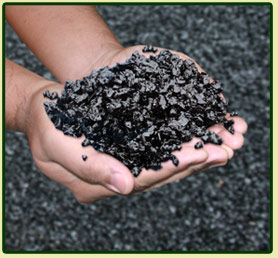Cold Mix Asphalt: Transforming the Means We Build Roadways
As the infrastructure market continues to evolve, the use of cold mix asphalt offers an appealing shift in roadway construction techniques. The ingenious residential or commercial properties of cool mix asphalt are difficult traditional road-building methods, leading the method for boosted effectiveness and durability.
Advantages of Cold Mix Asphalt
What advantages does chilly mix asphalt deal over traditional hot mix asphalt in road building and construction tasks? One essential advantage is its capability to be made use of in all weather conditions, unlike hot mix asphalt which needs certain temperature level problems for laying and mixing.
Additionally, cold mix asphalt is more environmentally friendly as it requires much less power for production and gives off lower levels of greenhouse gases contrasted to warm mix asphalt. These advantages integrated make chilly mix asphalt a reliable and flexible option for various roadway building jobs.

Ecological Benefits
Cold mix asphalt's environmental benefits add substantially to its charm as a sustainable selection for road construction projects. Among the essential environmental advantages of chilly mix asphalt is its lower carbon impact compared to warm mix asphalt. The manufacturing process of cool mix asphalt calls for less power considering that it can be manufactured and used at reduced temperatures, minimizing greenhouse gas discharges. Additionally, cool mix asphalt is frequently made using recycled products such as reclaimed asphalt sidewalk (RAP) and recycled asphalt shingles (RAS), more decreasing the need for new basic materials and drawing away waste from landfills.
Furthermore, the usage of cold mix asphalt can cause lowered energy usage throughout construction because of its capacity to be applied using standard tools without the need for extra home heating procedures. This not only decreases gas intake but also lessens air contamination and boosts air quality in the surrounding areas. By selecting cool mix asphalt for roadway projects, construction business can make a favorable influence on the setting while still guaranteeing durable and premium roadway surface areas.
Flexibility in Weather
In road building and construction tasks, the adaptability of chilly mix asphalt in different weather improves its practicality and effectiveness. Unlike hot mix asphalt, which needs heats throughout mixing and installation, chilly mix asphalt can be made use of in a vast array of climate condition. Asphalt Repair. This adaptability makes it an important option for roadway building in areas with extreme temperature levels or unpredictable weather patterns
Cold mix asphalt remains practical even in winter, permitting building tasks to continue throughout cold weather when warm mix asphalt might not be a practical alternative. Its ability to cure and set without the need for heats makes sure that road repair and maintenance can be executed year-round, reducing disturbances to website traffic circulation and decreasing total task timelines.
Furthermore, chilly mix asphalt's resilience to moisture makes it appropriate for locations vulnerable to frequent rain or high humidity. Its flexibility and resilience enable it to endure development and tightening triggered by temperature level variations, adding to longer-lasting cold mix asphalt roadways that need less repair work gradually. On the whole, the convenience of cool mix asphalt in various climate problems makes it a dependable option for sustainable and efficient roadway construction projects.

Cost-Effectiveness and Sustainability
Taking into consideration the economic and environmental effects of road construction products, how does the cost-effectiveness and sustainability of cold mix asphalt compare to typical alternatives? In terms of cost-effectiveness, chilly mix asphalt generally calls for reduced production temperatures, minimizing energy consumption and production expenses contrasted to warm mix asphalt.
From a sustainability perspective, cool mix asphalt uses a number of environmental benefits. Its lower production temperatures result in reduced greenhouse gas emissions and energy consumption, aligning with initiatives to reduce climate adjustment. The capability to recycle existing products into chilly mix asphalt adds to a circular economic situation technique, reducing the demand for virgin materials and lowering total environmental impact. Generally, the cost-effectiveness and sustainability of cool mix asphalt make it a promising choice to typical road building materials.
Effect On Roadway Durability
Cold mix asphalt, with its unique qualities, has a notable effect on roadway durability. One crucial facet is the capacity of cool mix asphalt to hold up against temperature level fluctuations without endangering its architectural honesty.
Moreover, the chilly mix asphalt's improved resistance to moisture damage plays a crucial role in keeping road toughness. Typical hot mix asphalt is more susceptible to dampness seepage, which can weaken the sidewalk structure with time. On the other hand, chilly mix asphalt's composition permits it to better resist water infiltration, lowering the chance of pits and various other forms of degeneration.
Final Thought
Finally, cool mix asphalt supplies a multitude of benefits for road construction, consisting of ecological benefits, flexibility in climate condition, cost-effectiveness, and boosted roadway durability. Its capability to be used year-round and its lasting practices make it a transformative option for producing roadways that are both ecologically friendly and sturdy. With its ingenious technique and durable outcomes, cold mix asphalt is changing the way we construct roadways for a much more sustainable future.
What benefits does cold mix asphalt deal over traditional hot mix asphalt in roadway building and construction jobs? In addition, cold mix asphalt is much more ecologically pleasant as it requires much less energy for manufacturing and emits reduced levels of greenhouse gases compared to warm mix asphalt. Asphalt Repair. Additionally, cold mix asphalt is frequently made using recycled materials such as reclaimed asphalt pavement (RAP) and recycled asphalt shingles (RAS), more decreasing the need for brand-new raw products and diverting waste from garbage dumps
Unlike hot mix asphalt, which requires high temperatures during blending and installment, chilly mix asphalt can be utilized in a wide variety of weather problems. In terms of cost-effectiveness, chilly mix asphalt generally needs reduced manufacturing temperature levels, reducing energy intake and manufacturing expenses compared to hot mix asphalt.